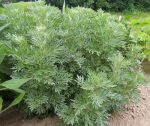Liver cancer remains one of the most challenging malignancies to treat, with limited therapeutic options and a high global mortality rate. However, promising developments in complementary and alternative therapies—particularly the use of herbal medicine—are offering new hope. A recent comprehensive bibliometric and visualization analysis published in Frontiers in Oncology sheds light on the growing scientific interest and effectiveness of herbal medicine in treating liver cancer.
Growing Scientific Interest in Herbal Remedies
The study analyzed a vast array of publications on herbal treatments for liver cancer using modern data visualization and bibliometric tools. The data showed a marked increase in global research efforts over the past decade, reflecting a surge in both clinical and scientific interest. Among the key findings:
- China leads the research landscape, contributing the highest number of published works on herbal medicine for liver cancer.
- Traditional Chinese Medicine (TCM) repeatedly emerged as a major focus in most studies.
- Many countries are now forming collaborative networks underscoring the international commitment to exploring herbal therapies.
This uptick in scholarly inquiry confirms that researchers worldwide are actively exploring plant-based solutions to complex oncological challenges.
Key Herbs and Mechanisms of Action
The study also identified specific herbs frequently studied for their anti-cancer properties. Among them:
- Curcuma longa (turmeric) – Contains curcumin, known for its anti-inflammatory and antioxidant effects.
- Scutellaria baicalensis (Chinese skullcap) – Rich in flavonoids with reported tumor-suppressing effects.
- Panax ginseng – Believed to boost immunity and inhibit tumor growth.
Researchers discovered that the bioactive compounds in these herbs act through multiple pathways including:
- Inducing apoptosis (cell death) in cancerous cells
- Regulating immune responses to enhance the body’s natural defenses
- Inhibiting angiogenesis—the formation of new blood vessels that feed tumors
These findings reveal the multi-target potential of herbal medicine, which contrasts with the typically single-target mechanism of conventional drugs.
Challenges and Future Directions
While the results are promising, the study also highlighted several limitations. A significant portion of the research is still at the preclinical or animal-testing stage. As such, more randomized clinical trials are needed to validate the safety and efficacy of herbal treatments in human patients.
Nonetheless, experts are optimistic. The continued integration of traditional herbal knowledge with modern pharmacological methodologies could lead to more holistic, personalized approaches to cancer care.
Why This Matters
As cancer incidences rise globally, the integration of complementary therapies like herbal medicine into mainstream cancer treatment may offer enhanced patient outcomes with fewer side effects. This shift also exemplifies a more integrative healthcare model—one that respects both tradition and innovation.
Learn more about the medicinal properties of:




















